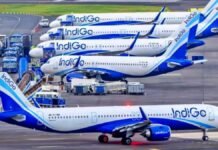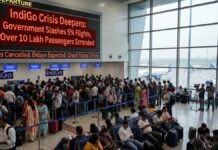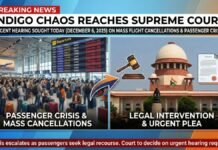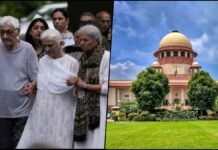
Key Points:
- What Happened: The Supreme Court issued a notice to the Central Government, DGCA, and AAIB regarding a PIL seeking an independent, court-monitored probe into the June 12 Air India crash in Ahmedabad.
- The Crash: Air India Flight AI171, a Boeing 787, crashed shortly after takeoff, killing 260 people, including 241 on board and 19 on the ground.
- The Controversy: The court strongly criticized the “unfortunate” and “irresponsible” selective leaks from a preliminary report that suggested pilot error (deliberately cutting fuel supply) was the cause.
- Conflict of Interest: The petition, filed by the NGO Safety Matters Foundation, highlights a “serious conflict of interest” as three members of the probe team are serving DGCA officials, the very body whose regulatory oversight is also under scrutiny.
- Court’s Stance: The bench, led by Justice Surya Kant, emphasized the need for “absolute confidentiality” until the final inquiry is complete to prevent speculation and protect the dignity of the pilots’ families.
New Delhi: The Supreme Court on Monday took strong exception to media reports and preliminary findings that blamed pilot error for the tragic Air India crash on June 12, describing the selective leaks as “very unfortunate and irresponsible”. A bench of Justices Surya Kant and N. Kotiswar Singh issued a notice to the Union government and aviation authorities, agreeing to examine a plea for an independent, court-monitored investigation into the disaster that claimed 260 lives in Ahmedabad.
The court’s sharp remarks came while hearing a Public Interest Litigation (PIL) filed by the NGO Safety Matters Foundation. The petition challenged the fairness of the ongoing probe into the crash of Flight AI171, a Boeing 787 that went down shortly after takeoff.
“Confidentiality is Most Important”: Court Warns Against Speculation
Appearing for the petitioners, senior advocate Prashant Bhushan argued that more than 100 days after the crash, a narrative blaming the highly experienced pilots has been allowed to spread, fueled by a preliminary report from the Aircraft Accident Investigation Bureau (AAIB). Bhushan pointed out that the report prematurely suggested the pilots moved the “fuel cutoff switches” from ‘RUN’ to ‘CUTOFF’, a claim that was widely reported internationally.
While acknowledging the need for a fair probe, Justice Surya Kant cautioned against making sensitive data public. “If the data records are made public, people will sit in their podcast rooms and spin theories,” he observed. “If tomorrow someone irresponsibly says a pilot is at fault, the family will suffer — and if later the report clears them, then what happens?”. The bench stressed that “absolute confidentiality” is crucial in such sensitive cases until a final, logical conclusion is reached.
Petition Alleges Serious Conflict of Interest
A major concern raised in the PIL is the composition of the five-member investigation team. Bhushan argued there is a “serious conflict of interest” because three members are serving officials of the Directorate General of Civil Aviation (DGCA). “How can officers of the very organisation whose role is likely to be examined be part of the inquiry?” he asked, questioning whether the DGCA could impartially investigate its own potential regulatory lapses.
The petition further alleged that the preliminary report violated investigation rules by withholding crucial information from the Digital Flight Data Recorder (DFDR) and Cockpit Voice Recorder (CVR) while selectively highlighting the pilot error angle. It also noted that documented system anomalies on the aircraft were downplayed.
The Supreme Court has directed the Ministry of Civil Aviation, the DGCA, and the AAIB to file their responses to the plea. The court clarified it is issuing notice for the “limited purpose of ensuring a free, fair, impartial, independent and expeditious investigation”.






















































